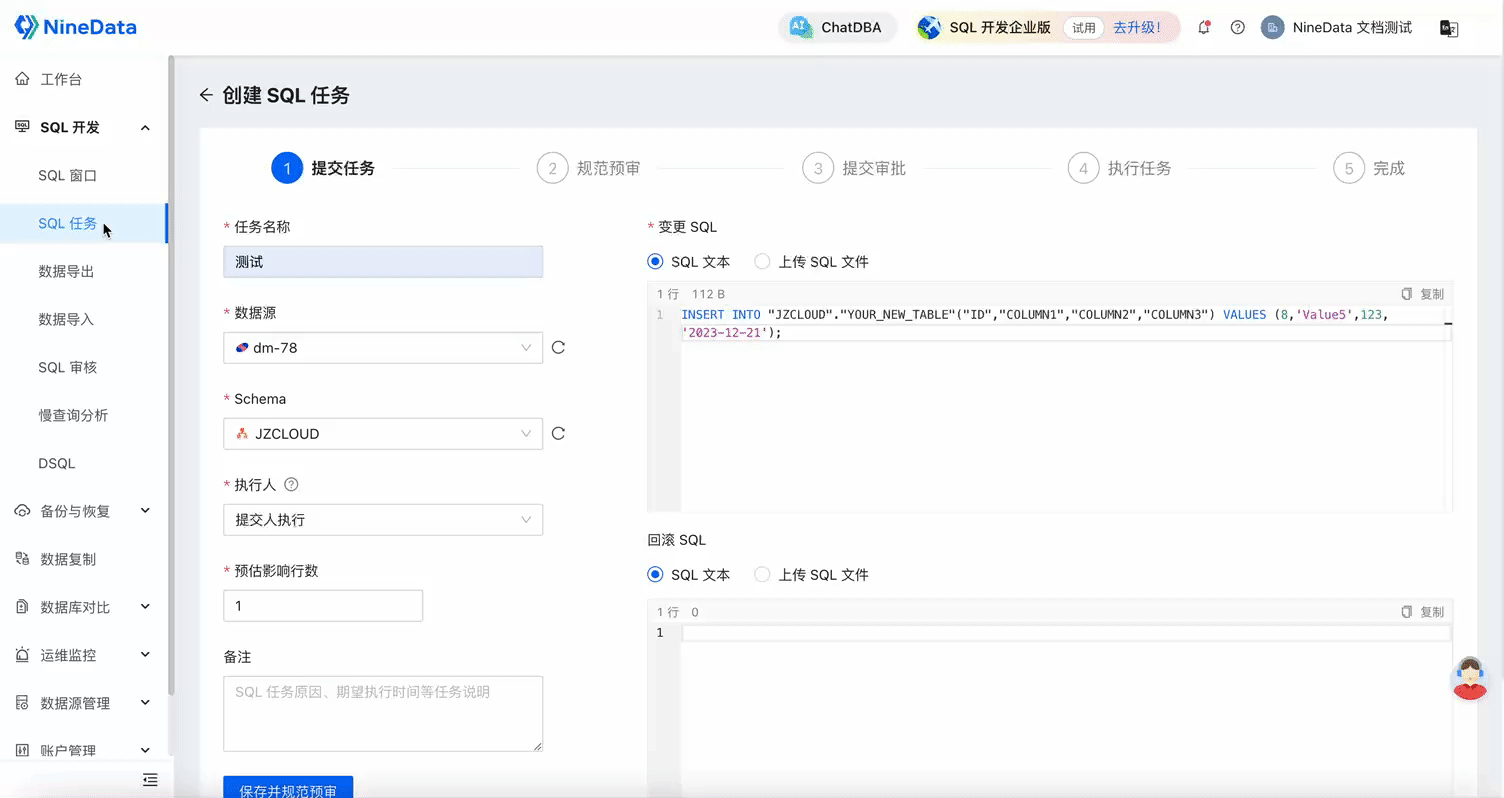NineData Fully Supports Huawei GaussDB (DWS/openGauss/GaussDB)
GaussDB, a name that resounds in the database field, is a distributed database independently developed by Huawei. As a full-scenario database, GaussDB supports both relational and non-relational database processing, meeting the needs of various business scenarios. Since the advent of GaussDB, it has been at the forefront of domestic databases with its outstanding performance, excellent stability, and innovative technology, providing strong support for the domestication process of domestic enterprises.
The excellent performance and stability of GaussDB stem from its advanced distributed architecture and hybrid transaction/analytical processing (HTAP) design. This allows GaussDB to maintain efficient query performance and transaction processing capabilities while handling large amounts of data. In addition, its AI automation capabilities enable self-diagnosis, self-repair, self-optimization, and self-protection of the database, greatly reducing the complexity and cost of database operations and maintenance.
NineData, as an enterprise-level database management tool, supports mainstream databases on the market, mainly including the following enterprise-level features:
- Prevent Direct Database Connection: The platform centrally manages enterprise databases, with each developer having an account, and database operations require logging into the NineData platform first. This perfectly solves the fluctuations in core business caused by direct database connections, as well as the situation where data loss due to account sharing cannot find the responsible person.
- Permission Control: It is convenient to configure corresponding permissions for each developer, or let developers actively apply for the required permissions, while easily revoking permissions when personnel leave.
- Development Standards: It has editable development standards, allowing each change initiated by developers to be automatically identified and intercepted based on standards.
- Batch Changes: NineData batch database changes support unified modification and update operations for database structures or data, covering multiple data sources, libraries, and tables, ensuring that data sources in a distributed environment can complete the same changes at the same time.
- Scheduled Execution: NineData SQL task function supports configuring scheduled tasks, allowing the system to automatically execute the target SQL at the configured time.
- Approval Process: It has a complete process approval function, and all SQL that may affect the business need to be approved at various nodes before they can be executed in the target library.
- Data Import and Export: It can export data from the database into files and import data from files into the database.
In addition, the NineData platform also supports the following powerful capabilities:
- AI Capabilities: It includes a knowledge Q&A robot similar to ChatGPT, which has been trained with a large model specifically for the field of databases, providing more comprehensive knowledge Q&A than ChatGPT. At the same time, it supports optimization of SQL statements, providing suggestions for indexes, SQL rewriting, etc., based on the best solution.
- Slow Query Analysis: Automatically collects and records all slow queries in the database, and provides optimization suggestions through performance diagnosis of each slow query, including adding or modifying indexes, adjusting table structures, etc. It can also configure SQL development standards based on business types, and after configuration, the system will diagnose slow SQL based on these standards.
- SQL Audit: For the stage before the application code is released, it supports auditing all SQL statements that need to be published, automatically identifying and preventing problematic SQL based on intelligent algorithms and enterprise-configured SQL development standards. The application can only be released after the SQL audit is passed.
- DSQL: For cross-database queries of multiple homogeneous and heterogeneous database systems, it can access multiple databases in one query, obtain useful information scattered in various databases, and aggregate this information into a query result returned, easily achieving data queries across multiple libraries, multiple data sources, and even multiple heterogeneous data sources.
NineData's support for Huawei GaussDB this time covers all versions, including DWS data warehouse services, openGauss open-source versions, and GaussDB enterprise-level native distributed database systems. This means that all GaussDB products can be managed in one stop through the NineData platform, without the need to switch between different client versions.
Feature Demonstration
Navigation Tree: An overview of the Schemas, tables, non-table objects, etc., in the database.
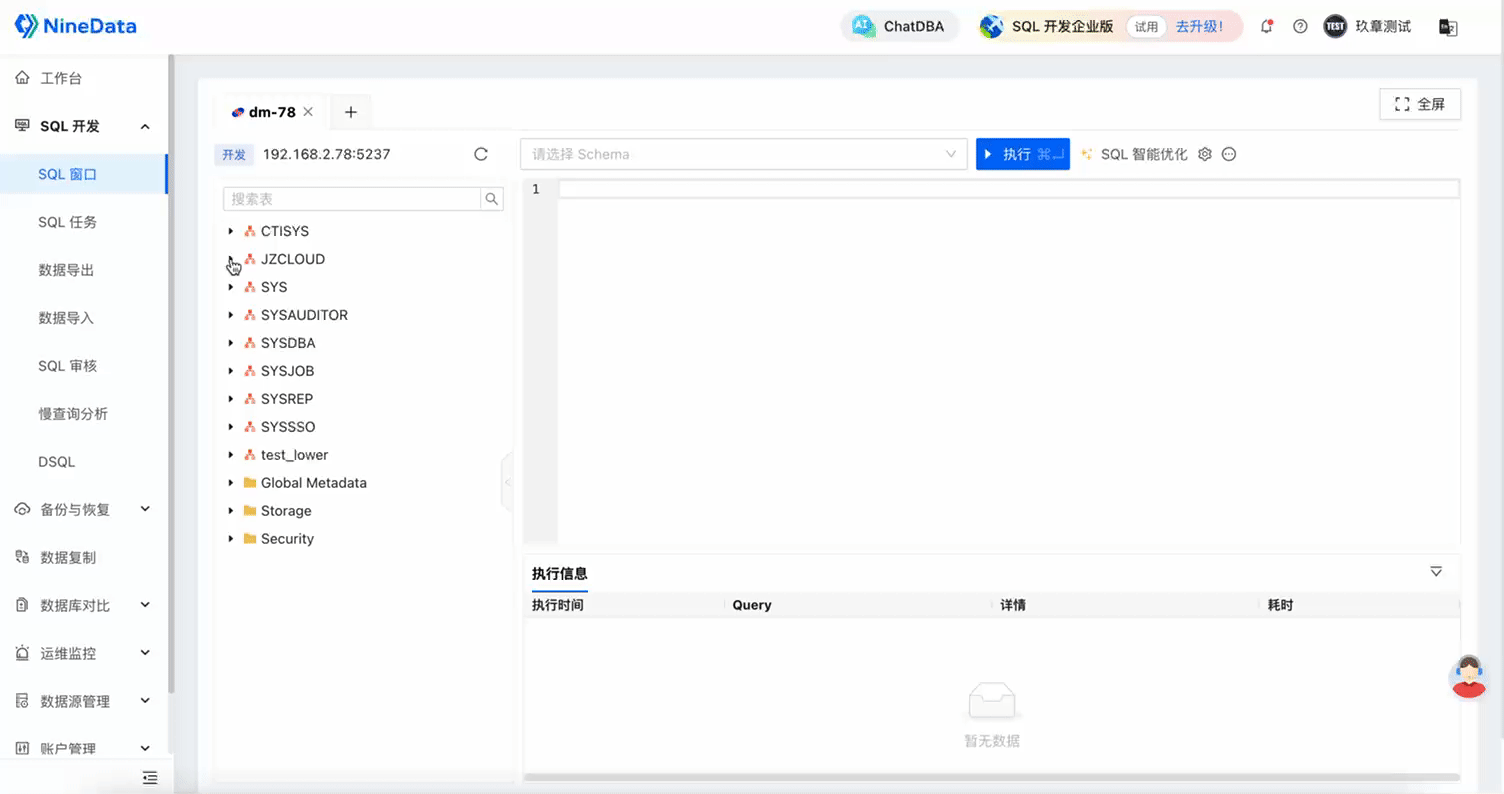
SQL Editing: Supports adding, deleting, modifying, and querying the database.
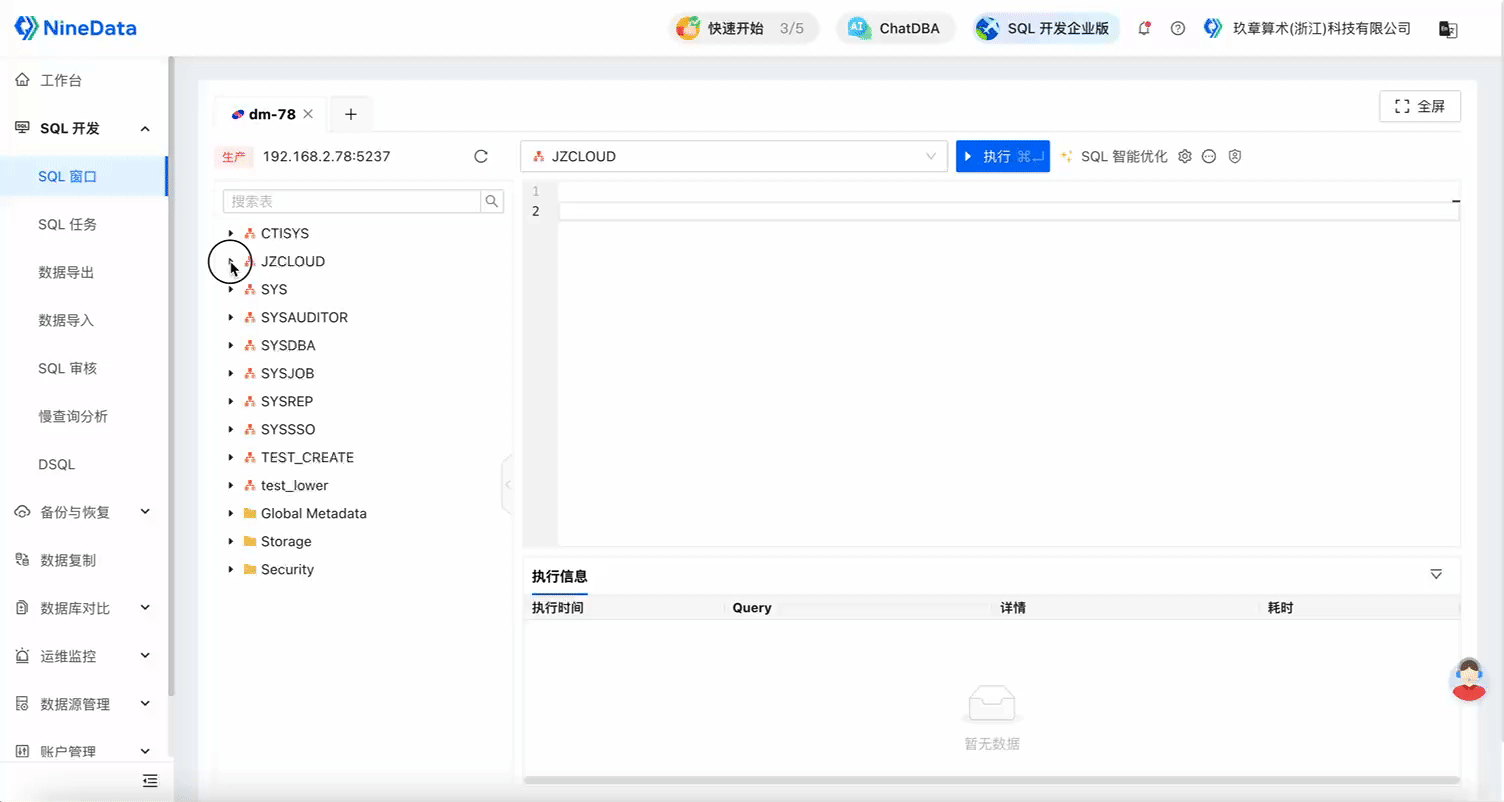
Result Set Editing: Supports visual editing of the result set, and at the same time, automatically generates change statements based on the modification results. The copied statements can be executed directly in other clients.
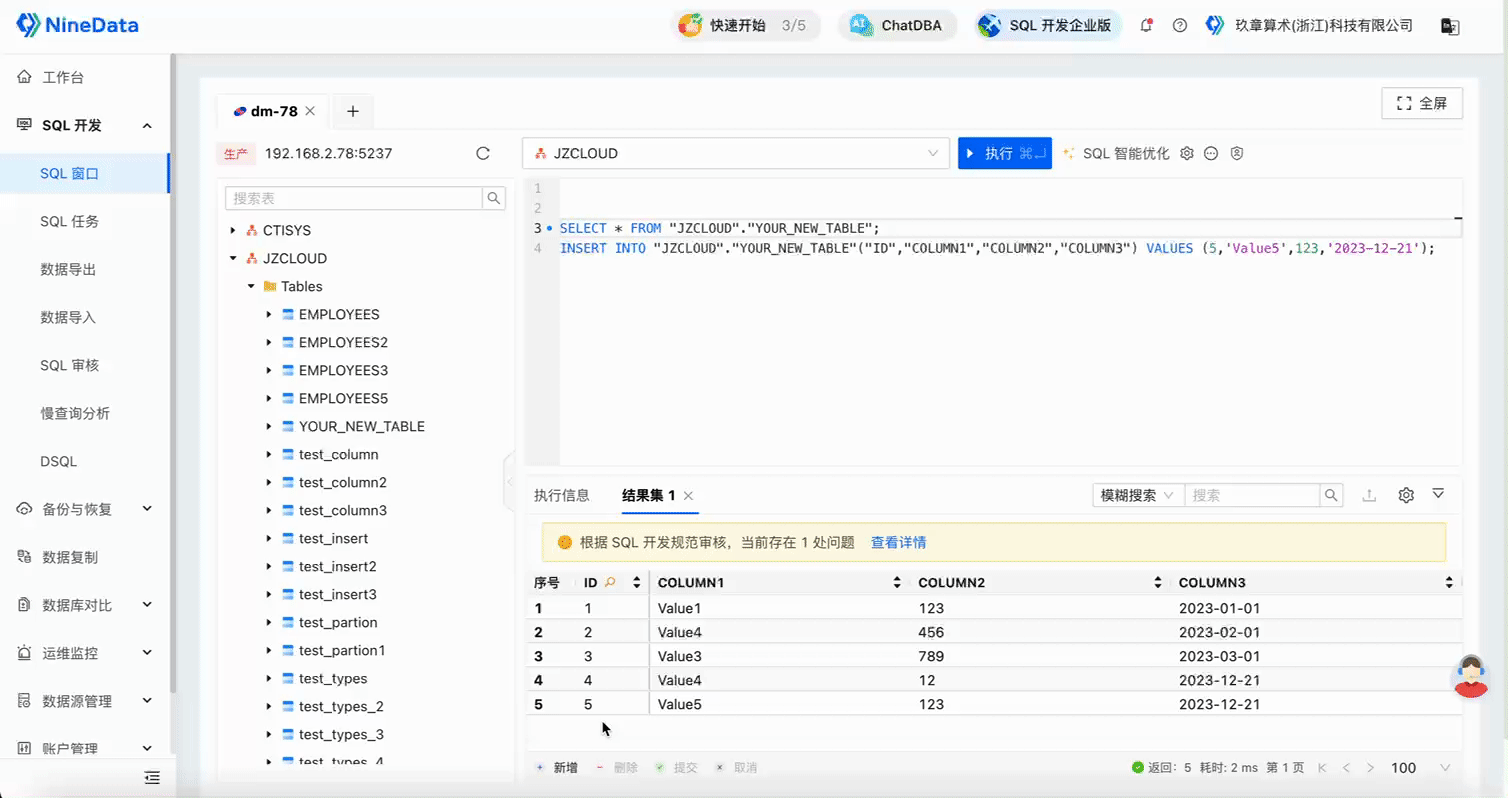
SQL Intelligent Optimization: Based on AI capabilities, it detects and optimizes query statements (SELECT).
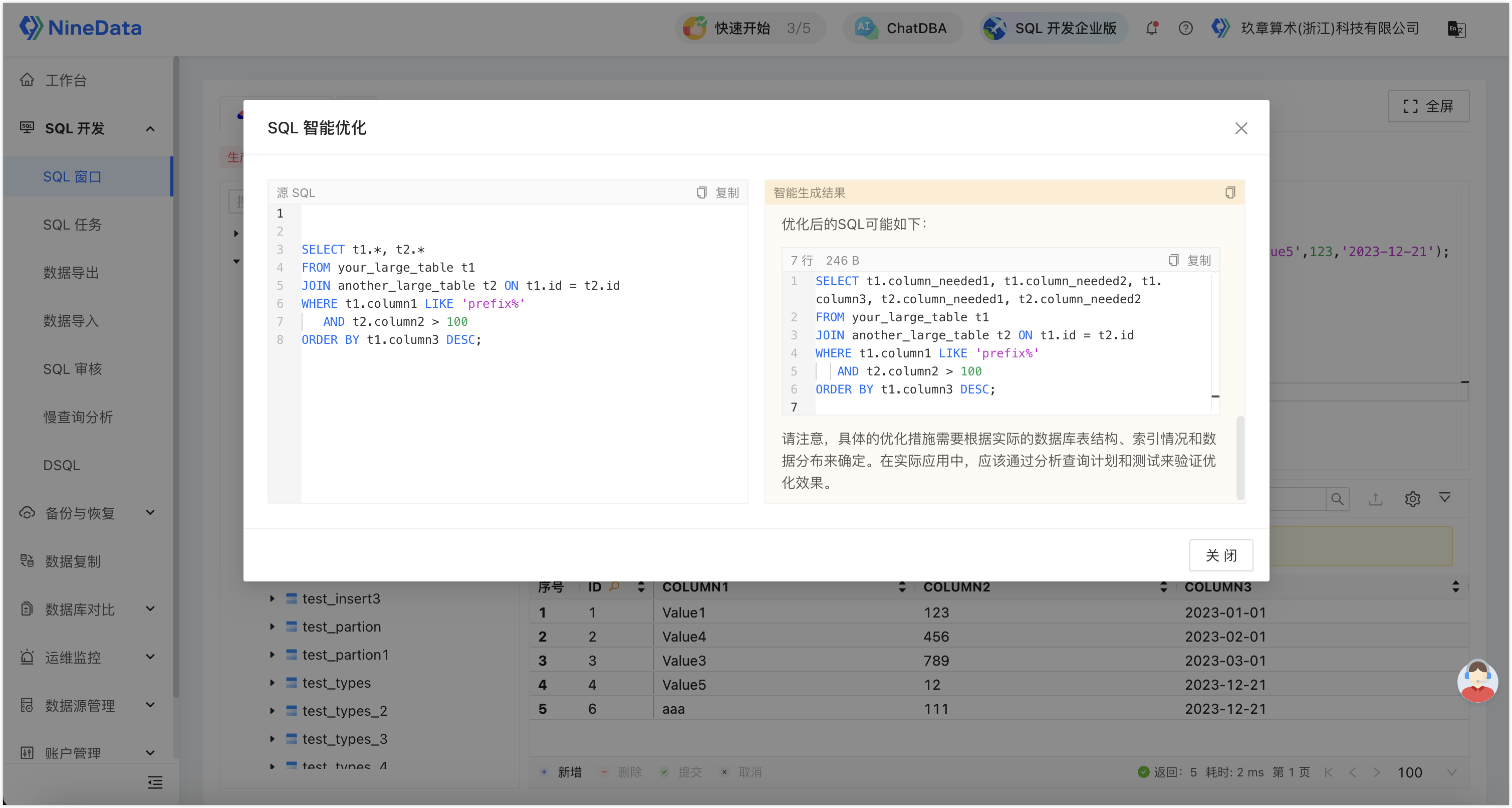
Intercept Non-standard Statements: Set SELECT statements to avoid using *, and if such SQL statements are detected, they will be automatically intercepted.
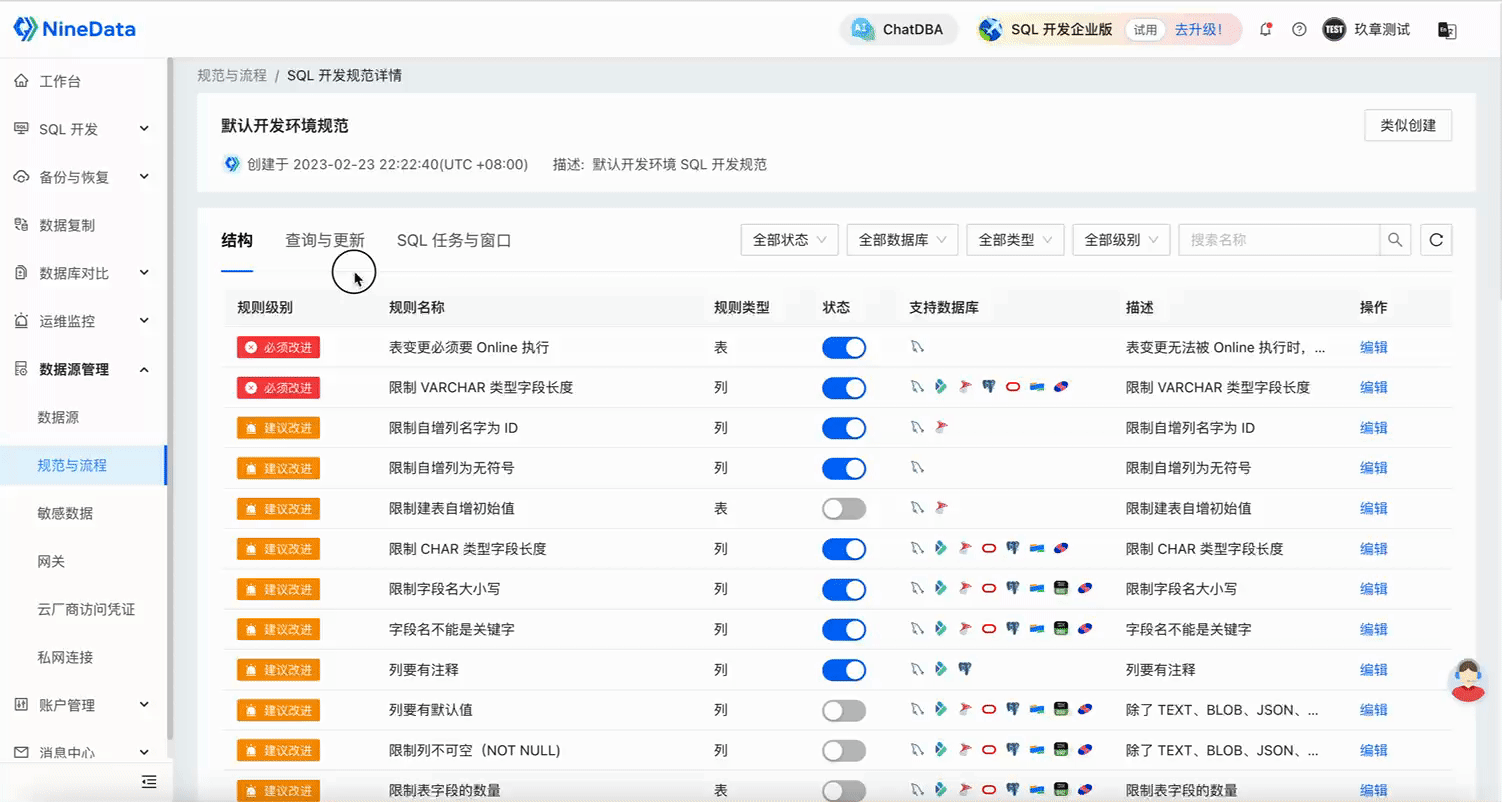
Scheduled Execution of SQL Statements: Submit SQL tasks, and during the execution phase after approval, you can choose to execute automatically at a certain time period.
